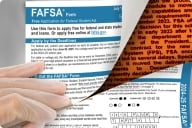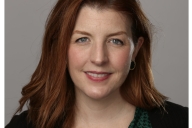You have /5 articles left.
Sign up for a free account or log in.

Andrey Popov/Getty Images
Remember when Varsity Blues became public two years ago? There were vast sums of money involved. And the students faked either their backgrounds (pretending to be athletes) or had their SAT or ACT scores faked by having proctors paid to "correct" their exams. Most colleges to which the students were applying were oblivious to being duped. And most of the accused admitted their guilt.
Welcome to a new admission scandal. This one involved international students, who paid for "help" on everything. Prosecutors last week indicted Yi Chen and Yixin Li, who live in Southern California, for running businesses the students paid for "guaranteed" admission to college. In return, the students received essays, doctored transcripts of their high school or college records, someone else to take the Test of English as a Foreign Language or the SAT, and help with their student visa applications.
The results? The students (19 referred to in the indictment) paid thousands of dollars and were admitted to Boston College, Boston University, Columbia University, New York University, Orange Coast Community College, the University of Illinois at Urbana-Champaign, the University of Southern California and the University of California campuses at Irvine and Riverside.
Most of the colleges don't have much to say. One said the student is no longer enrolled. A few say they know nothing of what happened. A spokesman for the prosecutor, Thom Mrozek, said, "I am not going to discuss specific information not contained in the indictment," but he added, "I have confirmed that investigators on this case had contact with and requested information on specific students from each college named in the indictment."
Victor Sherman, Li's lawyer, told the Los Angeles Times that his client runs a legitimate business and would plead not guilty. The government, Sherman said, is “making this sound like it’s the crime of the century.”
“They’re literally arguing that the entire security of the United States is at stake,” he said.
What this case doesn't have is famous people. There's no Lori Loughlin. So it's not receiving much attention. But the issues are serious, and some believe the abuses described in the case are more common than the Varsity Blues scandal.
So who are Chen and Li? And how did their businesses allegedly work?
Chen, who is 33 and also known as Brian Chen, and Li, who is 28 and also known as Eason Li and Calvin Wong, are indicted for some activities they are alleged to have done separately and some together. Chen and Li are charged with conspiracy, which carries a maximum sentence of five years in federal prison. They are also named in various counts of fraud and misuse of visas, permits and other documents, an offense that carries a sentence of up to 10 years in prison. Chen and Li are each charged with one count of aggravated identity theft, which carries a mandatory two-year prison sentence that would run consecutively to any other prison term imposed in the case.
According to prosecutors, Chen and Li are "linked to a group of imposter test-takers who were the subject of an earlier indictment that outlined how they used fake Chinese passports to take TOEFL exams on behalf of foreigners seeking college admissions and student visas. All six defendants in that earlier case pleaded guilty and were sentenced to probation."
The indictment details the various things Chen and Li allegedly did for the students. Among them is fraudulently obtaining a transcript for one student from the University of California, Berkeley, and for another from Shenyang Number Two High School in Shenyang, China.
Together they "utilized fraudulently created or fraudulently altered high school or college transcripts to reflect a passing [grade point average], and paid co-conspirators to write admissions essays and letters of recommendation on the student’s behalf," the indictment said. They "created application packages to schools on the foreign student’s behalf. Defendants Li and Chen would then submit them to the student’s schools of choice." Once the student was accepted at an American college, they would help with the paperwork for a visa. The visas themselves were appropriately issued, as the students had been admitted to American colleges, but the visa office (and the colleges) didn't know that the applications were allegedly based on fraud.
Quiet Responses
The organizations that are the primary spokespeople on international students would not talk about this issue. The Institute of International Education declined comment. NAFSA: Association of International Educators said that it only had one person who could talk about the issue, and she was not available last week.
Philip G. Altbach, research professor and distinguished fellow at the Center for International Higher Education at Boston College, said, "This sort of thing is widespread, and stories of a similar kind pop up from time to time." From the press release, he said, "It seems as though they have caught these guys red-handed."
Most of the activity of this sort "is done by agents overseas, many of whom are crooks," Altbach said. "But some of it is done by people here."
Lindsay Addington, director of global engagement at the National Association for College Admission Counseling, said, "I assume these folks are not NACAC members, but these behaviors and practices go against NACAC’s professional values and best practices as stated in the Guide to Ethical Practice, and paint those ethical professionals who work in educational consulting in a bad light."
She stressed that "American universities value the many contributions of international students and want to support them in applying." But it's important that international students rely on trustworthy sources of information. NACAC provides a guide, "Trusted Sources: Seeking Advice on Applying to Universities in Another Country," that is available in English, Chinese, Spanish, Korean and Vietnamese.
A number of colleges had, literally, nothing to say: Columbia University, the University of California and the University of Southern California.
A spokesman for Boston College said, "Boston College received a subpoena from ICE over a year ago but was not made aware of any allegation of admissions fraud or notified in advance by the U.S. attorney’s office of the allegations in the indictment. We have in the past withdrawn the acceptances of students who submitted false information in the admissions process and are currently looking into the matter."
A spokesman for NYU said, "We were unaware of this investigation before [Wednesday] morning. We are, of course, prepared to assist and work with the authorities. NYU takes the issue of integrity in the admissions process seriously, so we are disturbed by the charges and the fact that the practices alleged may have had an impact on NYU. The university looks forward to learning more so that it may take any action that is necessary and appropriate."
A spokesman for Orange Coast did not comment on the student named in the indictment, but said, "Orange Coast College takes the integrity of our international student admissions standards very seriously. The college has a vetting process when working with international recruitment agencies to ensure that these agencies are committed to ethical standards of recruiting international students. In addition, OCC conducts reference checks and evaluations by engaging and surveying with the students whom are referred by them."
Sometimes, the TOEFL score of a student is questioned, he said. "On the rare occasion OCC finds that a fraudulent result has been received, the applicant is not admitted and/or issued [the form to get a visa] from the college."
A spokeswoman for Boston University said, "The individual identified in the indictment is not currently enrolled at Boston University." She declined to say if the person already graduated, or why the person left.








